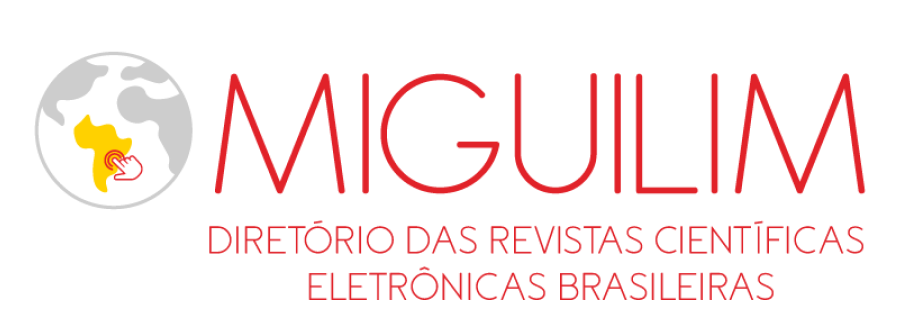Digital exclusion and public policies for technological inclusion in the state of São Paulo
DOI:
https://doi.org/10.5281/zenodo.14994503Keywords:
Technological advance, Public policies, Technological inclusion, TICS, Digital exclusionAbstract
The concept of digital exclusion comprises the extensive levels of societies that remain outside the phenomenon of the information society and the expansion of modern digital networks. The purpose of this article was to verify if there is a digital exclusion in the scope of the State of São Paulo and its Capital, or if there is a lack of interest by the population in general to be included digitally. It was used data from several studies carried out by the state government and by the city of São Paulo, and also some indicators pointed out by TIC Domicílios, a survey that has been carried out annually since 2005 in the country. The results obtained show a growing and evolving demand for greater digital inclusion and, even with several initiatives of the government entities, object of this work, there are still large gaps and bottlenecks related to the topic that need to be overcome, in order to democratically provide greater inclusion of the entire stratum of society targeted by the study.
Downloads
References
ACESSA SP, Sobre o acessa SP, Disponível em: http://www.acessasp.sp.gov.br/sobre-o-acessasp/Acesso em: 04 abr. 2021.
BRASIL. Constituição da República Federativa do Brasil, de 05.10.1988. Brasília, 1988. Disponível em: <http://www.planalto.gov.br/ccivil_03/Constituicao/Constituiçao.htm>. Acesso em: 05 ago. 2021.
Comitê Gestor da Internet no Brasil. Pesquisa sobre o Uso das Tecnologias de Informação e Comunicação nos Domicílios Brasileiros. Edição de 2019. São Paulo 2019. p 107. Disponível em: https://www.cetic.br/pesquisa/domicilios/publicacoes/. Acesso em: 05 mai. 2021
EQUIPE ITC, Como a pandemia tem impactado no aumento do Tráfego na Internet?, Disponível em: http://itc.com.br/aumento-do-trafego/#:~:text=Um%20aumento%20de%20tr%C3%A1fego%20na,(Ag%C3%AAncia%20Nacional%20de%20Telecomunica%C3%A7%C3%B5es). Acesso em: 28 abr. 2021.
GLOBO.COM ECONOMIA, Em 2019, Brasil tinha quase 40 milhões de pessoas sem acesso à internet, diz IBGE,Disponível em: https://g1.globo.com/economia/tecnologia/noticia/2021/04/14/em-2019-brasil-tinha-quase-40-milhoes-de-pessoas-sem-acesso-a-internet-diz-ibge.ghtml. Acesso em: 17 abr. 2021.
GOVERNO DO ESTADO DE SP, SP Lança ação de apoio à inclusão digital da população de baixa renda acima de 50 anos. Disponível em: https://www.saopaulo.sp.gov.br/spnoticias/sp-lanca-acao-de-apoio-a-inclusao-digital-da-populacao-de-baixa-renda-acima-de-50-anos/. Acesso em: 15 abr. 2021.
INFOESCOLA, Tecnologia da Informação e Comunicação. Disponível em:https://www.infoescola.com/informatica/tecnologia-da-informacao-e-comunicacao/. Acesso em: 13 jun. 2021.
NEVES, Ricardo. O novo mundo digital: você já está nele. Rio de Janeiro: Relume Dumará, 2015, p 66.
NUNES, P. S. (2011). Em busca do tesouro: inserção profissional e inclusão digital nas trajetórias de egressos/integralizados de um curso de Técnico em Informática – PROEJA. Tese (Doutorado em Educação). Programa de Pós-Graduação em Educação, Universidade do Vale do Rio dos Sinos. São Leopoldo: 2011. Disponível em: http://www.repositorio.jesuita.org.br/handle/UNISINOS/3170 . Acesso em: 06 mar. 2021.
PIERRE, Lévy. O que é virtual? Tradução de Paulo Neves. São Paulo: Ed. 34, 1996. p 160.
PRESIDÊNCIA DA REPÚBLICA, Casa Civil, Disponível em: http://www.planalto.gov.br/ccivil_03/constituicao/constituicao.htm#:~:text=I%20%2D%20construir%20uma%20sociedade%20livre,quaisquer%20outras%20formas%20de%20discrimina%C3%A7%C3%A3o. Acesso em: 16 abr. 2021.
SENADO FEDERAL, Atividade legislativa, Disponível em: https://www.senado.leg.br/atividade/const/con1988/CON1988_05.10.1988/art_205_.asp. Acesso em: 04 abr. 2021.
SUPER INTERESSANTE, Acesso à internet agora é direito humano básico, Disponível em: https://super.abril.com.br/blog/superblog/acesso-a-internet-agora-e-direito-humano-basico/#:~:text=%C3%89%20isso%20mesmo%3A%20navegar%20na,direito%20de%20acessar%20%C3%A0%20internet. Acesso em: 17 jan. 2021.
UNIDOS PELOS DIREITOS HUMANOS, Artigo 19 da Declaração Universal dos Direitos Humanos, Disponível em: https://www.unidosparaosdireitoshumanos.com.pt/course/lesson/articles-19-25/read-article-19.html. Acesso em: 04 abr. 2021.
WAGNER, Flávio R. Habilidade e inclusão digital - o papel das escolas. In: CGI.br (Comitê Gestor da Internet no Brasil). Pesquisa sobre o uso das tecnologias da informação e da comunicação 2009. São Paulo, 2010, pp. 47-51. Disponível em: https://www.cgi.br/publicacao/habilidade-e-inclusao-digital-o-papel-das-escolas/. Acesso em: 04 abr. 2021.
Published
How to Cite
Issue
Section
Copyright (c) 2022 Revista Processando o Saber

This work is licensed under a Creative Commons Attribution 4.0 International License.
Os direitos autorais dos artigos publicados pertencem à Revista Processando o Saber e seguem o padrão Creative Commons (CC BY), que permite o remixe, adaptação e criação de obras derivadas do original, mesmo para fins comerciais. As novas obras devem conter menção ao(s) autor(es) nos créditos.
























